Gustav Holst Interviews
1966 , Aldeburgh (Suffolk)
Cat no. 187
No video
There’s no web video for this work.
Please do get in contact to discuss other ways you could view this work.
Interviews commorating the work of Gustav Holst.
An 'About Anglia' feature by Anglia TV to mark the opening of the Department of Musicology at the University of East Anglia, though interviews with Imogen Holst and Mr William Barker, organist at Thaxted Parish Church, about composer Gustav Holst's connection with this region. Holst's music played over scenes from a blacksmith's shop. The blacksmith is working on a piece of wrought iron and a boy is pumping the bellows. There are more excerpts from Holst's music, this time played over shots of the temporary buildings at the University of East Anglia Village in Norwich. The scenes moves to Aldeburgh. There are shots of Imogen Holst, the composer's daughter, skipping down steps and then walking on the beach. In her study she talks to the interviewer about Holst's life; the influence of his European upbringing, the importance to him of Ralph Vaughan Williams collection of English Folk Songs, their close friendship and the fact that Holst had to teach to earn a living. After some general shots of Thaxted Church and the neighbourhood, Mr. William Barker is introduced. Mr. Barker came to Thaxted as Church organist in 1919. He recalls Holst playing the organ during visits to Thaxted over a period of four years. The interviewer reads a letter from Holst congratulating him on a Christmas Eve Service.
Featured Buildings
The University of East Anglia Village, Norwich; Thaxted Parish Church
Featured Events
The opening of the Department of Musicology at the University of East Anglia; Lectures by Imogen Holst to mark the opening of the above
Keywords
Music; Musicians; University of East Anglia
Other Places
The University of East Anglia Village, Norwich; Thaxted, Essex
Background Information
Gustav Holst. Gustav Holst was born in Cheltenham in 1874. The family had Scandinavian, German and Russian origins. He was educated at Cheltenham Grammar School and taught music by his father, Adolph, an accomplished pianist and music teacher. He was influenced by Greig and Berlioz. He attended the Royal College of Music where he learned composition. He met Ralph Vaughan Williams in 1895 whilst still a student. He worked through college by playing the trombone on the pier at Blackpool or Brighton during the summer and in London theatres during the pantomime season.Whilst a student he joined the Hammersmith Socialist Group where he met, amongst others, William Morris and his future wife, Isobel Harrison, a soprano in the Socialist Choir, which he conducted. During this period he became influenced by Hindu literature, learning Sanskrit at the London School of Oriental Languages in order to set some Hindu poems to music.After leaving the Royal College he worked as a professional trombone player in the Carl Rosa Opera Company and the Scottish Orchestra. He gave up orchestral playing in 1903 intending to earn his living as a composer. This failed and he began teaching, first at the James Allen Girls' School in Dulwich and later as Director of Music at St. Pauls Girls' School. In 1907 he took charge of the music department at Morley College. During the 1920s he joined the teaching staff of the Royal College of Music and of the University College at Reading.His most famous orchestral work, The Planets, was first performed in September, 1918, at a private performance at the Queen's Hall by the Queen's Hall Orchestra, conducted by Adrian Boult, then aged 29. Holst conducted The Planets himself in 1920. Fugal concerto was written in 1923 and Choral Symphony was written for the Leeds Festival in 1925. Egdon Heath, inspired by Hardy's The Return of the Native, commissioned by the New York Symphony Orchestra and considered by Holst to be his best work, was completed in 1928. The Choral Fantasia and Hammersmith were written during 1930, the latter for the BBC. Whilst lecturing at Harvard in 1932 he conducted the Boston Symphony Orchestra in his own works. He died in 1934, aged 59.Imogen Holst. Imogen Holst was a noted musician in her own right. Her biography of her father was first published in 1958 and revised in 1969. Her volume of his music was published in 1951. She was a notable choral conductor and founded her own group, the Purcell Singers, in 1953. She remained its director until 1967. She was also director of Music at the Dartington Hall Arts Centre, Devon, from 1943 until 1951. Her association with Aldeburgh began in 1952 when she began to help in the organisation of the festival. In 1956 she became a director of the festival, which she remained. She died in 1984, aged 76.
-
Producer : Anglia Television
Manifestations
Gustav Holst Interviews
-
Genre: Biography / Arts / Television
-
Locations: Aldeburgh (Suffolk)
-
Description Type: monographic
-
Subject: William Barker / University of East Anglia / Thaxted Parish Church / Gustav Holst / Imogen Holst / music
Copyright restrictions apply.
Please see our terms of use. Films on this website are provided for personal viewing. Should you wish to use the films in any other way please contact eafa@uea.ac.uk
terms of useThe data for this page was generated on 18/08/2025 11:38:36+00:00. Click to regenerate this page .



